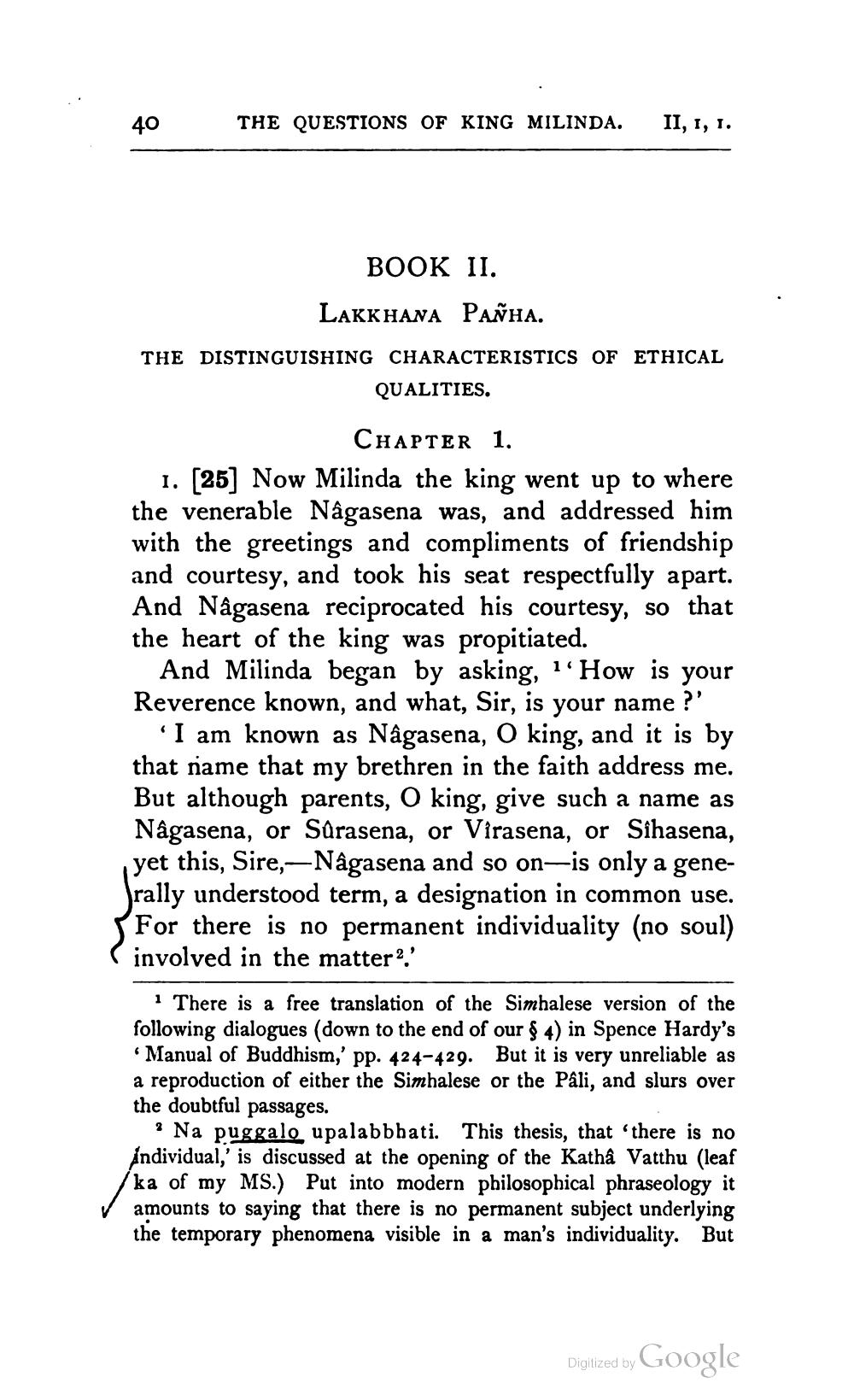________________
40
THE QUESTIONS OF KING MILINDA.
II, 1, 1.
BOOK II.
LAKKHANA PAÑHA. THE DISTINGUISHING CHARACTERISTICS OF ETHICAL
QUALITIES.
Chapter 1. 1. [25] Now Milinda the king went up to where the venerable Nâgasena was, and addressed him with the greetings and compliments of friendship and courtesy, and took his seat respectfully apart. And Nagasena reciprocated his courtesy, so that the heart of the king was propitiated.
And Milinda began by asking, l'How is your Reverence known, and what, Sir, is your name?'
'I am known as Nagasena, O king, and it is by that name that my brethren in the faith address me. But although parents, O king, give such a name as Nâgasena, or Surasena, or Virasena, or Sihasena, yet this, Sire,—Nagasena and so on-is only a generally understood term, a designation in common use.
For there is no permanent individuality (no soul) (involved in the matter?'
1 There is a free translation of the Simhalese version of the following dialogues (down to the end of our $ 4) in Spence Hardy's
Manual of Buddhism,' pp. 424-429. But it is very unreliable as a reproduction of either the Simhalese or the Pali, and slurs over the doubtful passages.
? Na puggalo upalabbhati. This thesis, that there is no individual,' is discussed at the opening of the Katha Vatthu (leaf
ka of my MS.) Put into modern philosophical phraseology it ✓ amounts to saying that there is no permanent subject underlying
the temporary phenomena visible in a man's individuality. But
Diglized by Google




